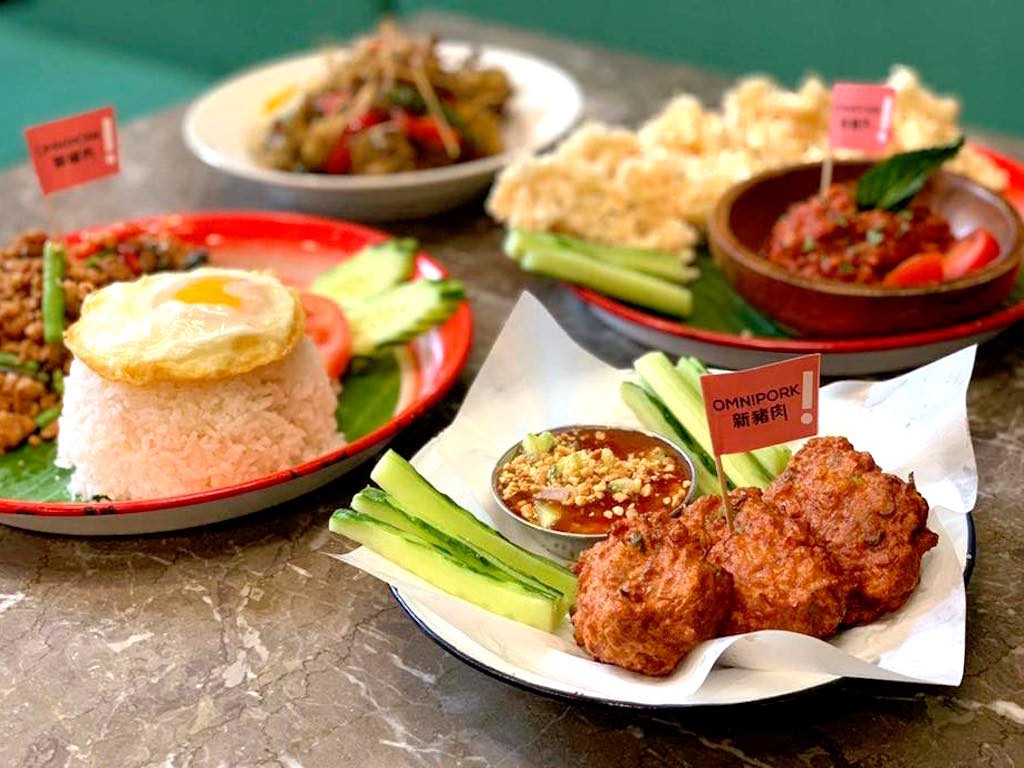4 Mins Read
Plant-based meat substitutes are becoming a hot commodity in Asia, with companies all over the region gearing up to get a share of the booming market. From food tech startups and established manufacturers racing to develop new vegan-friendly meat analogues to F&B industry players gearing up to introduce the tastiest meatless menus, it’s clear that plant-based is a trend that will take over the food space across Asia this year (you heard it HERE first).
A massive business opportunity has been carved out of the increased awareness about the environmental footprint and health impact of meat consumption. Scientists have continuously reiterated the massive greenhouse gas emissions, water and soil pollution and inefficient resource use stemming from animal agriculture. Sustainability concerns, coupled with a rise in health consciousness and the region’s economic growth, is driving the Asian market to choose plant-based alternatives more than ever before. To add to this, the outbreak of African swine fever (ASF) has led to the culling of over 100 million pigs in China, causing a sharp spike in pork prices and fuelling consumers to look for meat-free analogues to fill in the gap and attracting big US altmeat companies to fill the gap.
Read: Plant-Based Startups Roll Out Pork Alternatives To Help Region Cope With African Swine Fever
According to experts at Euromonitor International, the plant-based meat substitute market is set to hit US$15.8 billion this year. As observed by research director at the Mitsubishi Research Institute Seiichi Kizuki, this is a consumer trend that is “not to be missed,” and indeed, companies are quickly vying to nab a slice of the booming Asian plant-based market.

In Japan, long-established meat manufacturer Itoham Foods has been preparing to launch a meatless Japanese-style Hamburg steak and fried chicken product. Made out of soybeans and targeted for the growing “flexitarian” population in Japanese cities, the upcoming plant-based line is set to debut in February this year. Fuji Oil Holdings, another major manufacturer in Japan, has reported huge demand in their soy-based vegan product line, and are planning to open up a new facility in Chiba Prefecture later on this year to double their production capacity from 9,000 to 18,000 tonnes a year. The company has also launched a completely plant-based restaurant in Osaka serving soybean-based mock meat dishes like vegan lasagna.
Meanwhile, restaurants are racing to add in vegan-friendly options to their menus in order to attract the growing numbers of flexitarian and plant-based diners. Wolf Burgers, a Singapore-based burger chain that operates four outlets, added a meat-free option to their menus using the Silicon Valley-based faux beef patties by Beyond Meat, joining the now thousands of restaurants across the major Asian cities that have created their own versions with the famous patty. Beyond Meat’s rival, Impossible Foods, have had intense success in launching their products across Asian restaurants as well, experiencing a five-fold increase in sales in the region alone and receiving huge funding from major names like Hong Kong’s tycoon Li Ka-shing.
Read: US Food Tech Giants Want To Conquer Chinese Market

Given the pork shortage crisis as a result of the outbreak of African swine fever, restaurants in the region haven’t just used American-made beef imitations, but have been keen to use Hong Kong-based Green Monday’s minced pork substitute Omnipork in their menus as well. Made from soy, rice, shiitake mushrooms and pea protein, Omnipork launched in early 2019 to huge fanfare in Hong Kong and has become a common menu item in over 200 restaurant outlets in the city, as well as in Taiwan, Singapore and Thailand. Most recently, Omnipork debuted in mainland China as well through a partnership between Green Monday and e-commerce giant Alibaba-owned Tmall and over 180 hotels and restaurants across Beijing and Shanghai.
As demand for meat-free substitutes shows no sign of stopping across the entire Asian region, it appears to be the perfect time for more industry players to expand into the plant-based meat market.
Lead image courtesy of Omnipork / Right Treat / Green Monday.




